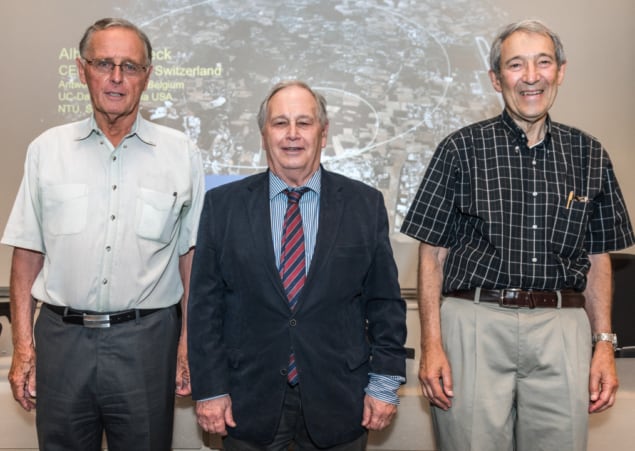Whether the idea of supergravity, an effort to unify all theforces of nature, could be a true description of the cosmos still hangs withinthe balance quite forty years when it was introduced.
Supergravity also underpins a favorite prospect ofphysicists ‘ theories of everything,’ string theory.
By the start of the 1970s, physicists had built a standardmodel of particle physics wherein three of the four fundamental forces ofnature are connected with their own particles. The electromagnetic force isprovided by the particle of light, the photon; the strong force that connectsatomic nuclei is regulated by the’ gluon;’ and the weak force that governsradioactive decay is linked with’ W’ and ‘ Z ‘ particles.
Supergravity was an early attempt to do this, combininghigh-energy physics with Einstein’s theory of gravity, the theory ofrelativity.
Van Nieuwenhuizen remembers the night he watched theirmalicious program crunch through the supergravity calculations, fearful itmight untimely grind to a halt, indicating that the idea was wrong.
David Tong, a string intellectual at the University ofCambridge, UK, says that the innovation behind supergravity was“Astonishing”, as long as at the time particle physicists and gravityresearchers seldom interacted.
Today, supergravity could be a cornerstone of string theory,that could be a in style candidate for the final word description of reality.
Particle accelerators, together with CERN’s giant subatomicparticle atom smasher, have did not spot any signs of scientific theoryparticles or the gravitino, or any proof for string theory – though thisdoesn’t rule it out fully.
A lack of proof ought to conjointly not cut back fromsupergravity’s achievements, argues Strominger, as a result of the idea hasalready been wont to solve mysteries regarding gravity.
General relativity apparently permits particles to possessnegative plenty and energies, in theory.
Turning supergravity’s mathematical machinery to theory ofrelativity enabled physicists to prove that particles cannot have negativeplenty and energies.
A theoretical scientist at the metropolis Institute forAdvanced Studies in Germany, warns that the LHC’s failure to seek outscientific theory particles deals a close to fatal blow to supergravity’spossibilities of being true.










